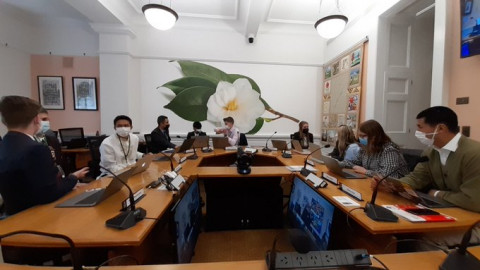
Presentation notes
Patrick Morgan
@patrickmorgan @CyclingActionNZ
Cycling Action Network
Today we're looking at How we can shift the current culture in Aotearoa away from car ownership and towards other modes such as active travel (walking and cycling) and public transport.
The committee will consider:
How car ownership is currently serving New Zealanders i.e., why do people own cars
How we can make other modes more accessible, affordable, and available to New Zealanders
For those who are car-dependent and unable to readily shift to a different mode, what are some ways that car usage can become more environmentally sustainable
I am delighted to see your inquiry topic.
Instead of asking 'why should we shift to walking, cycling and public transport?', you have jumped directly to the crucial question: “how?'.
That question is at the core of my job as an advocate at New Zealand's national cycling charity, Cycling Action Network. We campaign for better cities, better neighbourhoods, better streets, and better lives. It is also at the core of my values.
Let's focus on equity, climate action, well-being, and can I use the F-word here? FUN.
I want to start with a short activity. This is called 1-2-4.
We're going to think about riding a bike, and how that felt.
First, let's take 1 minute by yourself to think about a time you went on a bike ride. Where were you going? Who were you with? What bike was it? How did biking make you feel?
Then for 2 minutes, talk to your neighbour about it.
Then we'll spend 4 minutes hearing from you all.
Responses - learning to ride, crashing, riding with friends, freedom
What are the barriers to biking?
How can we overcome those barriers?
- individual actions
- things Councils and the Govt can do
Responses - lack of personal safety from traffic, a pereception that cycling isn't cool, lack of secure bike parking and changing facilities, restrictive school uniform rules
Solutions include awareness education for drivers, traffic calming, 30 kmh (Tasman District Council, Auckland, Wellington), protected bike lanes, changing facilities, secure parking, permissive school uniform rules
Big idea 1 - support people to take up cycling with financial assistance
The Govt has cut fuel taxes ($589m) and public transport fares, but there's nothing for people who would like to bike more.
What could they do?
How about helping people buy a bike or an e-bike? What do you think?
Shall we cost it out – for $600m you could give 600,000 people a $1,000 grant.
That could transform the way people get around.
Note that most urban trips are short, with 2/3 less than 6 km.
Big idea 2 - quickly build networks of protected bike lanes
using proven tactical urbanism approach. Examples are Seville, Paris, New Zealand
Avoid, shift, improve is the standard way to reduce emissions
A-S-I seeks to achieve significant GHG emission reductions, reduced energy consumption, less congestion, with the final objective to create more livable cities.
Let's think about avoid, shift, improve.
When it comes to transport, how could we avoid carbon emissions?
How could we shift?
And how could be improve?
What this actually means is designing a system that, first, helps people avoid travelling; second, encourages the use of low-emissions modes of transport, like buses or cycling when they do travel; and third, improves vehicle efficiency when people travel by private motor vehicles.
This is not just about personal choices and individual actions.
Car dependence is a system level problem so it requires system level solitions.
Beware of anyone who suggests you can fix this by making different choices.
How did we get into this mess?
Decades of planning that has put the needs of cars first has created dangerous streets, polluted air, an unsatble climate, unaffordable housing, high transport costs, poor health, and unattractive streets.
It doesn't have to be this way.
When you ask people what they want,
- safe and attractive streets
- clean air and water
- make it easy to get to the places I want to get to – work, shops, school, friends.
Action point
Talk to your MP about why helping people buy a bike or an e-bike can rapidly cut emissions, improve health, cut congestion, and craete popular support.

Comments
Let's encourage people to
Let's encourage people to bike. If you ride your bike to work instead of driving, you will save around 3000 pounds of greenhouse gas emissions per year. It's indeed a big help, right?
Davidson | Baltimore Drywall Contractors
You have remarked very
You have remarked very interesting points! ps decent website. tree felling cambridge
I have learn a few just right
I have learn a few just right stuff here. Definitely value bookmarking for revisiting. mt vernon oven repair
Car dependence is a system
Car dependence is a system level problem so it requires system level solutions. artificial grass El Paso